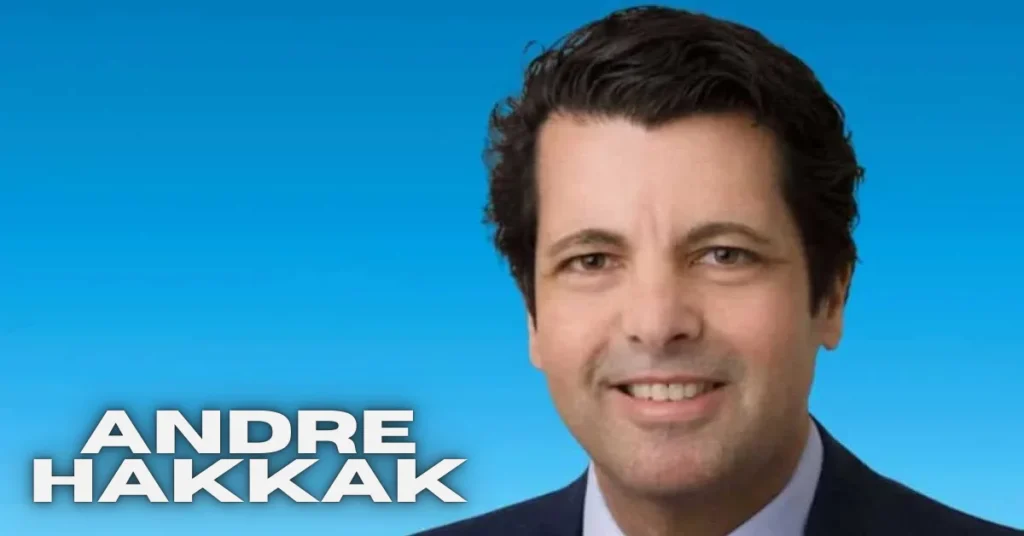Introduction
Andre Hakkak is a name synonymous with innovative leadership and a deep commitment to fostering the real economy. In today’s world, where the financial markets often seem disconnected from the everyday lives of people, andre hakkak approach bridges this gap by focusing on investments that directly support tangible sectors. His philosophy centers around uplifting businesses and industries that drive real-world economic growth.
But what exactly does it mean to support the real economy, and why does it matter? Let’s explore how Andre Hakkak’s strategies aim to bring lasting change to the economic landscape.
What is the Real Economy?
The real economy refers to the production of goods and services that people and businesses use every day. It includes sectors like agriculture, manufacturing, and construction—anything that creates tangible value. Unlike the financial economy, which revolves around stocks, bonds, and other financial instruments, the real economy is about the things that affect everyday lives.
This distinction is critical because while financial markets can fluctuate wildly due to speculation, the real economy tends to grow based on real-world needs and innovations. Andre Hakkak understands this difference and strives to focus his investments on sectors that sustain long-term economic stability.
Andre Hakkak’s Background
Andre Hakkak’s career in finance spans decades, with notable successes in various investment strategies. His experiences have provided him with a unique perspective on how to support businesses that form the backbone of economies. Throughout his journey, Hakkak has seen the struggles of small businesses and the need for more sustainable and impactful investment models.
His leadership has always been driven by a belief that true economic growth comes from supporting industries and businesses that provide tangible value to society.
The Need for Supporting the Real Economy
In a post-pandemic world, the need to focus on the real economy has never been more pressing. Many countries are grappling with rising inequality, weakened supply chains, and labor shortages. Supporting the real economy isn’t just about boosting GDP; it’s about ensuring that growth reaches everyone, from the smallest businesses to large industries.
The pandemic highlighted the vulnerability of certain sectors, especially small and medium-sized enterprises (SMEs). These businesses need more than just short-term financial injections; they require long-term, sustainable support.
Key Sectors of the Real Economy
The real economy encompasses various sectors, each vital to maintaining a healthy economic environment. Some of the most critical areas include:
Agriculture:
Essential for food security and rural livelihoods.
Manufacturing:
Drives innovation, job creation, and exports.
Infrastructure:
Supports the functioning of cities and communities.
SMEs:
The backbone of most economies, contributing to innovation and employment.
Challenges Faced by the Real Economy
Several obstacles stand in the way of a thriving real economy, including:
Supply Chain Issues:
The global pandemic disrupted supply chains worldwide, exposing vulnerabilities in logistics and production.
Labor Shortages:
Certain sectors struggle to find skilled workers, affecting productivity.
Technological Gaps:
Many industries lag in adopting the latest technology, limiting their competitiveness.
Andre Hakkak’s Approach to Supporting the Real Economy
Andre Hakkak’s approach to bolstering the real economy is both forward-thinking and grounded in long-term sustainability. Rather than focusing solely on short-term financial gains, he seeks to invest in sectors that will benefit society for years to come. His strategy emphasizes sustainable growth, investing in industries that not only produce financial returns but also create jobs, innovate, and contribute to societal well-being.
Investing in SMEs: A Vital Pillar
Small and medium-sized enterprises (SMEs) are a key focus of Hakkak’s investment strategy. These businesses are often overshadowed by larger corporations in the financial world, yet they are the backbone of most economies. By empowering SMEs, Hakkak believes that innovation, local employment, and community development can thrive.
He employs a variety of strategies to support SMEs, including providing access to capital, mentoring, and fostering partnerships that enable small businesses to grow and compete on a larger scale.
Sustainable Investment for Future Growth
Sustainable investment is more than just a buzzword for Andre Hakkak. It’s a core part of his philosophy. He understands that for the economy to grow in a meaningful way, investments need to be made with an eye toward the future. This means considering environmental, social, and governance (ESG) factors in every decision.
By promoting sustainable investments, Hakkak ensures that the sectors he supports not only contribute to economic growth but also protect the environment and promote social equity.
Technological Advancements in the Real Economy
Hakkak recognizes the importance of technological innovation in driving economic growth. From digital transformation in manufacturing to advancements in agriculture, technology can improve efficiency, reduce costs, and open up new opportunities for businesses.
In his view, technology is a crucial factor in ensuring that the real economy continues to evolve and adapt to modern challenges.
Collaborations and Partnerships
Andre Hakkak understands that no single entity can uplift the real economy alone. Partnerships and collaborations between businesses, governments, and investors are essential for driving sustainable growth. He has been a strong advocate for creating ecosystems where different sectors work together to solve common problems.
The Role of Private Capital
Private capital plays a crucial role in supporting the real economy, and Hakkak has mastered the art of leveraging it to foster growth. By directing private investments toward sectors that create real value, he helps ensure that the capital is used to drive meaningful economic progress.
The Impact of Government Policies
Government policies also play a pivotal role in shaping the real economy. From tax incentives to infrastructure investments, policy decisions can have a significant impact on businesses. Hakkak believes that a collaborative approach between the private sector and government can lead to greater overall success.
The Global Perspective
While much of Andre Hakkak’s work focuses on local economies, he has a global vision. He understands that the real economy isn’t confined by borders and that international collaboration is essential for sustained growth. By looking beyond national boundaries, he seeks to foster a more interconnected and resilient global economy.
Conclusion
Andre Hakkak’s commitment to supporting the real economy is a testament to his forward-thinking and sustainable approach. Through innovative investment strategies, a focus on SMEs, and an emphasis on technology and sustainability, he is helping create a future where economic growth benefits everyone. As the world continues to face challenges, leaders like Hakkak are showing the way toward a more resilient and inclusive economic landscape.
FAQs
Who is Andre Hakkak?
Andre Hakkak is the CEO and Co-Founder of White Oak Global Advisors, known for his innovative leadership and commitment to supporting the real economy.
What does “real economy” mean?
The real economy refers to the production of goods and services that create tangible value, encompassing sectors like agriculture, manufacturing, and infrastructure.
Why is supporting SMEs important to Hakkak?
Hakkak believes that small and medium-sized enterprises (SMEs) are the backbone of economies, driving innovation and local employment, making them vital for sustainable growth.
How does Hakkak integrate sustainability into his investment strategies?
Hakkak promotes sustainable investment by considering environmental, social, and governance (ESG) factors, ensuring that investments contribute to long-term societal well-being.
What role does technology play in Hakkak’s vision for the economy?
Hakkak emphasizes the importance of technological innovation in driving efficiency and growth across various sectors, helping businesses adapt to modern challenges.







